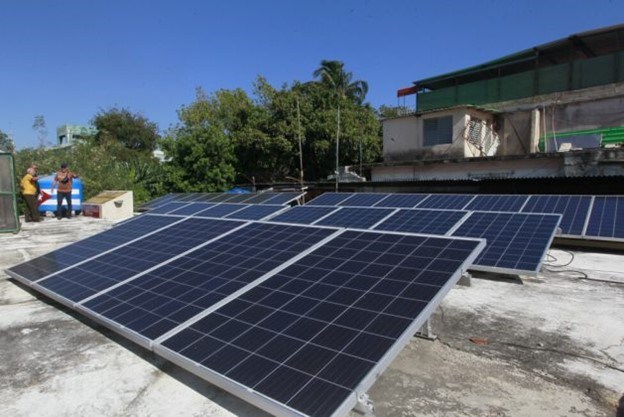
About 95 percent of Cuba’s electricity generation relies on fossil fuels. For that to change would mean major investment.
HAVANA TIMES – With a bolder policy and flexible payment mechanisms, perhaps Alexis Rodríguez would have opted for solar panels for his home, instead of the portable generator that has made it possible for him to weather the frequent blackouts caused by Cuba’s recurrent energy crises.
“It’s a little noisy, the fuel is expensive, but I can tolerate one and solve the other. What is intolerable is for my family and I to spend nights and early mornings without electricity, without rest, suffering the heat and mosquitoes, and with the risk of the food in our fridge spoiling,” the barber, who lives in the eastern city of Holguín, told IPS.
“Solar panels are the best, there is no fuel cost or noise. But they need to be sold with real incentives in order for more people to invest in them.” — Félix Morffi
Rodríguez shelled out 850 dollars a few months ago for a 2500 watt (W) gasoline-powered generator.
Marileydis Pérez, a homemaker in Batabanó south of Havana, received a 900 W generator from her son, who sent it from his home in the United States, “to run the fans, the television and turn on the lights on blackout nights.”
Pérez told IPS that although the government created a system of shifts for the sale of gasoline, “just five liters” for those who have registered generators, “I have only been able to buy it that way once in two years.” As a result, she resorts to the black market for gasoline.
Highly dependent on fuel imports, Cuba consumes more than eight million tons annually, of which almost 40 percent is covered by heavy domestic crude oil with a high sulfur content, used mainly in thermoelectric generation.
During the last five years, along with the deterioration of the domestic economic situation, the fall of the main sources of foreign currency and the tightening of the U.S. embargo, the authorities have faced increasing difficulties in meeting fuel demand.
An update of retail prices in the domestic market led to an increase of more than 400 percent in sales rates since Mar. 1.
The price of a liter of regular gasoline climbed from 25 to 132 Cuban pesos (equivalent to 1.10 dollars at the official rate). The same was true for regular diesel.
On the black market, a liter of regular gasoline costs 250 to 300 pesos, or 0.70 to 0.85 cents on the dollar, taking into account the exchange rate parallel to the government’s.
In this country of 11 million inhabitants, the average monthly salary is equivalent to about 40 dollars, which amounts to around 14 dollars in the informal reference market for a significant number of products, goods and services to which families have access in order to satisfy their basic needs.
The problems facing the energy supply have fuelled the importation of generators, as well as their sale on the black market. Government-owned stores that only take foreign currency also sell them at very high prices, far beyo


